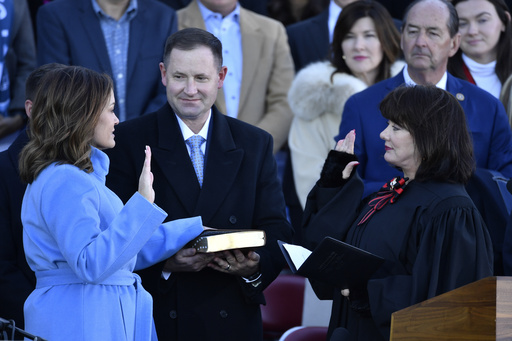FRANKFORT, Ky. — Kentucky has marked a historic moment as it celebrates the appointment of its first female chief justice, Debra Hembree Lambert. Speaking candidly, she mentioned that gender has rarely been a focal point in her career, a perspective she attributes to her upbringing in eastern Kentucky, where she worked in her father’s auto body shop.
Chief Justice Lambert emphasized that her decisions would be judged by their quality rather than her gender. “The decisions I make as chief justice will be evaluated based on their merit—not influenced by my gender,” she said. Lambert was chosen by her fellow justices to succeed Laurance VanMeter, who opted not to seek reelection.
This milestone coincides with another significant achievement, as Pamela R. Goodwine recently became the first Black woman elected to Kentucky’s Supreme Court, bringing the total number of women on the seven-member bench to four. A ceremony to celebrate Goodwine’s historic election is scheduled for later this week.
During a ceremonial event in the Supreme Court chambers, Lambert reflected on her appointment, saying it’s “notable” but not something she dwells on in terms of gender. She recounted lessons from her youth, including when she learned to replace brake shoes under her father’s guidance, illustrating her belief in self-reliance and perseverance.
Both Lambert and Goodwine have already begun their roles on the bench. Goodwine commented on Lambert’s role as a trailblazer, noting that her leadership exemplifies the judiciary’s progress toward diversity. “Your guidance is a testament to our commitment to a judiciary that mirrors our society’s diversity and resilience,” Goodwine remarked.
Through her role as chief justice, Lambert aims to apply principles instilled by her parents: hard work, joy, and fearlessness, with a deep-rooted passion for justice and equality stemming from her Appalachian background. “A modest upbringing instills the urge for equality and listening to everyone’s voice,” Lambert shared.
Justice Michelle M. Keller commented on the court’s composition change, remarking that having a majority of women hasn’t altered the judicial process. “As judges and lawyers, our gender doesn’t define our work. We integrate our personal experiences and backgrounds into our roles, all of us,” Keller stated.
Leaders from both political parties, including Kentucky’s Democratic Governor Andy Beshear, attended the event. Beshear remarked on the court’s crucial role in interpreting and upholding the law without bias. Highlighting the nonpartisan election of justices, he emphasized that their focus should be on advancing the state in collaboration with its citizens. Beshear commended the justices and the broader judicial system for maintaining democracy and ensuring that the rule of law serves the populace rather than powerful interests.
Governor Beshear and Republicans from the state’s legislature echoed sentiments recognizing the accomplishments and significance of having a diverse and effective judicial system at the highest court in Kentucky.



